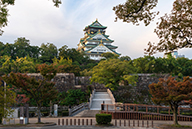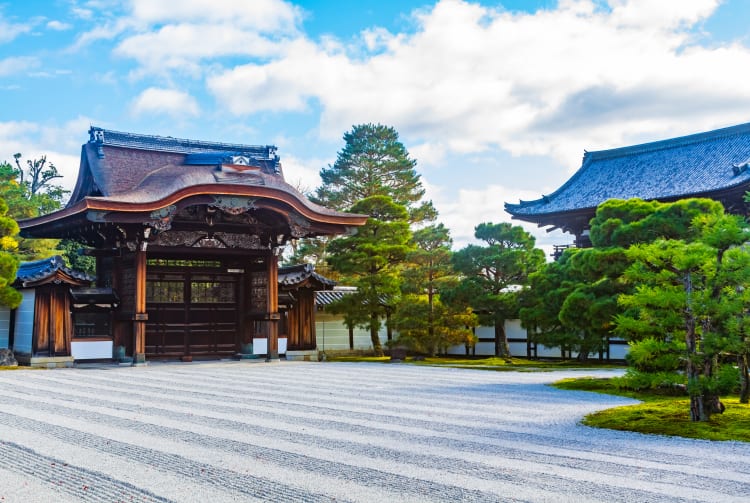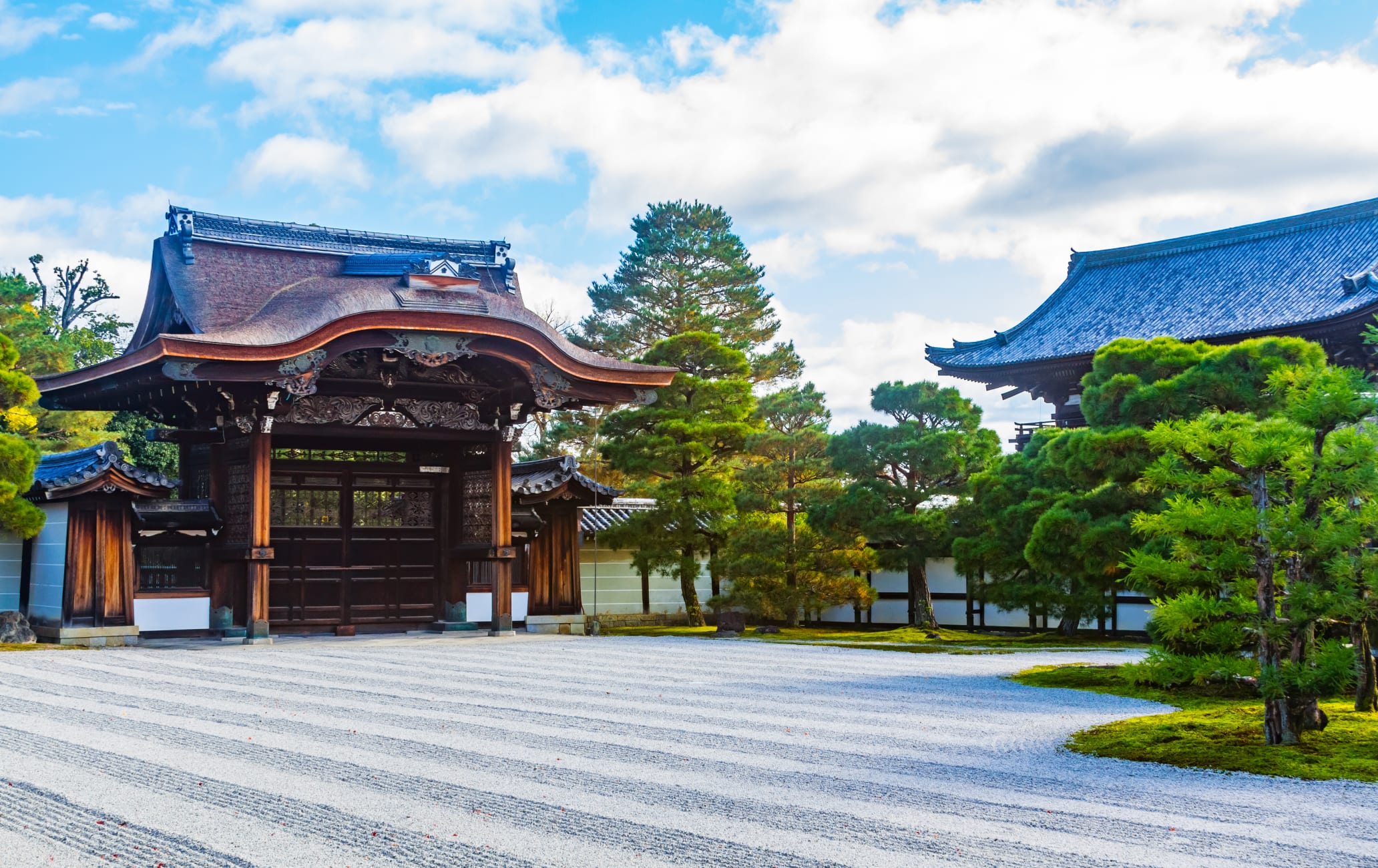World Cultural Heritage sites and the villas of Heian-period aristocrats
The Kinugasa and Omuro districts comprise a large portion of northwestern Kyoto, with Mt. Kinugasa at their center. This was once a flourishing area, filled with the villas of aristocrats and the Imperial family, which date back to the 8th century.
Don't Miss
- The "weeping sakura" cherry tree blooming above the Ryoanji temple garden in spring
- The mini 88-temple pilgrimage behind Ninnaji Temple
Quick Facts
The cherry trees at Ninnaji Temple bloom later than other varieties
Ninnaji Temple priests spread their knowledge and techniques on garden construction throughout Japan
How to Get There
The best way to reach these districts is by bus or taxi.
The easiest place to start is at Kinkakuji Temple, which you can get to on a 205 bus from Kyoto Station . Alternatively, take a 204 or 205 bus from Kita-Oji subway station, on the Karasuma Line.
The highlights of temple row
Many temples and shrines were built along the road known as Kinukake-no-michi, including the world-famous Kinkakuji Temple. Kinkakuji Temple is a three-story wooden structure covered with gold leaf.
The temple is now a World Cultural Heritage site, along with Ninnaji and Ryoanji temples nearby. The trees in the area turn magnificent colors in the autumn.
Ryoanji Temple
The stone garden at Ryoanji Temple represents the heart of zen philosophy, with fifteen stones of different sizes laid in white sand, allowing the viewer an opportunity to decipher its meaning for themselves.
Ninnaji Temple
Graceful Ninnaji Temple was erected by Emperor Uda in the ninth century. At the end of spring, the two-meter-tall Omuro-zakura cherry trees brighten the temple with lovely blossoms.
The Kyoto Prefectural Insho Domoto Museum of Fine Arts
Another feature of the district is the Kyoto Prefectural Insho Domoto Museum of Fine Arts, which exhibits Japanese paintings by Insho Domoto, whose style is renowned for its bright colors and modern feel.
























































